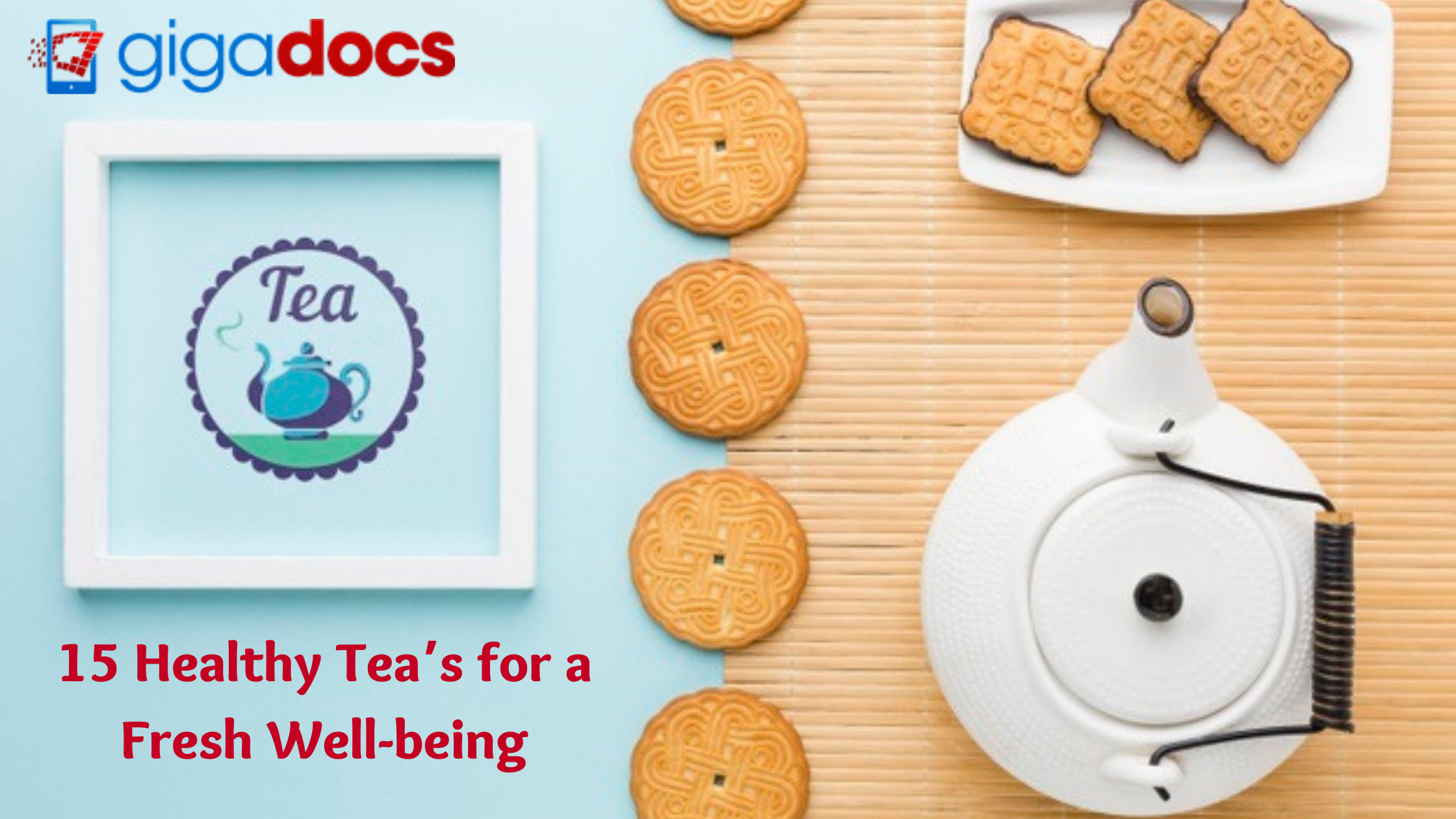Most of our mornings begin with a hot cup of Tea. Tea is considered to be one of the healthiest beverages and has attracted the attention of tea connoisseurs all over the world. A warm cup of tea refreshes us and provides the essential hydration that keeps us going throughout the day.
For Indians, Tea is a vital ingredient – from spending time with the family to gathering with friends, to soothe the winter sore throat. However, a soothing cup of tea in the mornings on an empty stomach can cause health troubles. Thus, tea lovers must have their favorite beverage with or after breakfast.
Tea is a popular beverage all across the country, its consumption was approximately one billion kilograms during 2020. Over the years, the consumption of tea has increased consistently. India is one of the world’s biggest consumer and producer of tea. Indians consume three to four cups of tea daily (which is 700-950 ml) without any side effects!
International Tea Day
Since 2005, the International Tea Day is observed on 16 December and aims to draw the attention of governments and citizens on how the global trade of tea impacts workers, and growers. This day is observed mainly in the tea producing countries like India, Sri Lanka, Bangladesh, Kenya, Indonesia, Vietnam, and Malaysia.
Later in 2015, the Indian government moved a proposal to follow the observance of International Tea Day through the UN FAO. This proposal was accepted by the United Nations General Assembly (UNGA) and now May 21 is designated as the International Tea Day. The month of May was selected since it marks the start of the tea manufacturing season in most of the tea producing countries.
Tea and its Benefits
Different types of tea are packed with a host of benefits. Several research points out that many possible health benefits are bundled up within tea. Drinking tea helps in mitigating the side effects of obesity, dehydration, and cancer. Various studies show that drinking about three to four cups of tea a day gives more vitality than drinking water can. The antioxidants of the tea boost ones’ s health and at the same time rehydrates it.
Drinking tea reduces the impact of stress, protects us from chronic diseases for instance the Alzheimer’s Disease and Parkinson’s. Tea strengthens our immune system and helps fight off the bad cholesterol. Besides, Tea is known to naturally stimulate L-Theanine function which aids in decreasing anxiety levels. This may be particularly beneficial to those whose blood pressure shoots up under stress.
Here are the different types of tea that can reduce anxiety and stress.
Teas for Anxiety and Stress Cure
- Peppermint infused Tea
Peppermint infused tea is a caffeine-free tea, which can be either consumed hot or cold. Peppermint tea helps in soothing digestion problems, by acting as a mild sedative. The aromas of peppermint tea may aid to calm down the feelings of anxiety, fatigue, and frustration. Additionally, research shows that inhaling the scent of peppermint oil may also soothe anxiety among those who were hospitalized for heart attack and child birth.
- Green Tea
Green tea, a must for many, is considered to be one of the healthiest beverages in the world. It comes loaded with a host of antioxidants that aid in fat loss, protects the onset of cancer, and significantly lower the risk of heart disease.
The polyphenol component in green tea helps in fighting off anxiety and stress. Although green tea contains caffeine, it’s adaptogenic, which keeps you alert without making you feel drowsy.
- Ginger Tea
Who does not like a hot cup of relaxing ginger tea in these cold winters? The scent of the ginger itself acts as a form of aromatherapy that can keep the tiredness away. Drinking a cup of ginger tea can uplift your mood, lower blood pressure, prevent heart attacks, relieve heartburn, improve blood circulation, and leave you feeling calm.
- Chamomile Tea
Chamomile tea is considered to be among the most well-known stress-soothing teas. Besides been synonymous with instilling a feeling of calmness, the Chamomile flower is a medicine used for treating several health complexities. Long-term use of chamomile extracts significantly reduces moderate-to-severe symptoms of a generalized anxiety disorder (GAD), improves sleep quality, relieves anxiety and depression, prevents bone loss, and boosts immune health.
- Lavender Tea
Lavender tea is made from the extracts of the delicate Lavender flower. This tea helps to overcome irritability, tension headaches, nervous breakdown, indigestion, and anxiety. Besides, lavender is also used as aromatherapy for relaxation.
- Kava
Kava is a form of herbal tea often consumed after a meal in the winters of Kashmir. Drinking Kava made from saffron keeps the body warm, reduces the onset of anxiety symptoms thereby making you feel calm, relaxed, and happy. Kava in moderate proportions can prevent seizures, relax muscles, and relieve pain. Although it’s advised to have Kava tea in limits, excess of Kava may cause liver damage.
- Hibiscus Tea
Hibiscus tea is a herbal tea made by steeping parts of the hibiscus plant in boiling water. Hibiscus Tea has a tart flavor similar to that of cranberries and is known to keep your liver healthy, prevent hypertension, and lower blood pressure. Being rich in flavonoids, hibiscus tea relaxes high-stress levels and boosts the immune system with essential doses of Vitamin C.
- Passionflower Tea
Passionflower Tea is known for its sleep-inducing properties. Besides, it keeps away the symptoms of anxiety, hot flashes, pain, seizures, and hysteria. However, it is not a good idea to take passionflower tea if you are pregnant or breastfeeding.
- Valerian Root: Valerian Tea
The root of the Valerian plant is dried and brewed for supporting sleep. This tea is known for its distinctive woody taste and contains compounds that soothe the feelings of stress, anxiety, and calms down the brain. Make sure you take the Valerian Tea at night for a good sleep and avoid driving after you drink this tea.
- Lemon Balm Tea
Lemon balm tea is used for curing anxiety, stress, insomnia, indigestion (dyspepsia), and dementia. It also suggested for people with Alzheimer’s. Lemon Balm tea is a rich source of Vitamin C and mitigates the symptoms of fever caused by cold or flu. Also known as Melissa, this gentle and mildly relaxing tea relieves tension and helps people with mental disorders.
- Tulsi Tea or Holy Basil Tea
Tulsi is popular as one of the most popular herbs. The leaf extracts of the tulsi plant valued as an adaptogen, helps our body adapt to stress. Tulsi leaves hold anti-depressant properties that normalize psychological stress. They are known to treat many conditions, including diabetes, headache, upset stomach, ear-ache, and so on. Tulsi leaves have a delicate and refreshing flavor and are used as a home remedy for treating cough and cold.
- Lemongrass Tea
A favorite for many, Leamon grass is considered to be one of the most refreshing, delicious, and calming herbs for brewing tea. Lemongrass tea powers you with its antioxidant, anti-inflammatory properties. Drinking lemongrass tea may reduce your cancer risk, help to promote healthy digestion, and regulate your sleep cycles, leading to improved sleep even for longer periods.
- Rose infused Tea
Rose flower is known for its fragrance. Tea infusion made from rose petals can immediately soothe, relax, and calm your mind. Both fresh and dried rose petals can be used for the brew, which can be consumed before hitting the bed. Rose infused tea takes off the stress, tiredness, and encourages a good night’s sleep.
- Ashwagandha/Winter Cherry Tea
Ashwagandha has been used for more than 3,000 years for its rejuvenating properties. This mildly flavored root herb is a proven treatment for anxiety, stress, and insomnia. Ashwagandha roots and leaves may help to reduce blood sugar levels, aid in the treatment of cancer, boost our immune system and increase the count of the white blood cells in our body.
- Turmeric and Honey Tea
Turmeric is an anti-inflammatory healing spice. Honey is valued for its calming properties which aid in sleeping. Turmeric brewed in milk and topped with honey is a proven recipe that would reduce nausea, boost your immunity, and help you relax.
Healthy Wellbeing with Gigadocs
It is vital to note that Tea is acidic, and if consumed on an empty stomach, can cause acidity or heartburn. That is why medical professionals advise against drinking Tea the first thing in the morning. The herbal tea’s listed here can help to take off occasional stress and anxiety, while it is equally important to remember that what works for one person may not work for everyone.
Thus, for healthy wellbeing, we must eat a balanced diet, stay active, follow a routine, and take adequate rest.
To consult the best medical practitioners, book an appointment on the Gigadocs App today. Gigadocs is an intelligent practice management software that helps you with digital appointments, vaccination schedule chart, appointment reminder alerts, vitals tracking, and digital prescription facilities.
Download the Gigadocs app-
- IOS App – apple.co/2W2iG4V
- Android App – bit.ly/33AQoRC
To know more and schedule a Virtual Consultation demo, e-mail, at info@gigadocs.com




